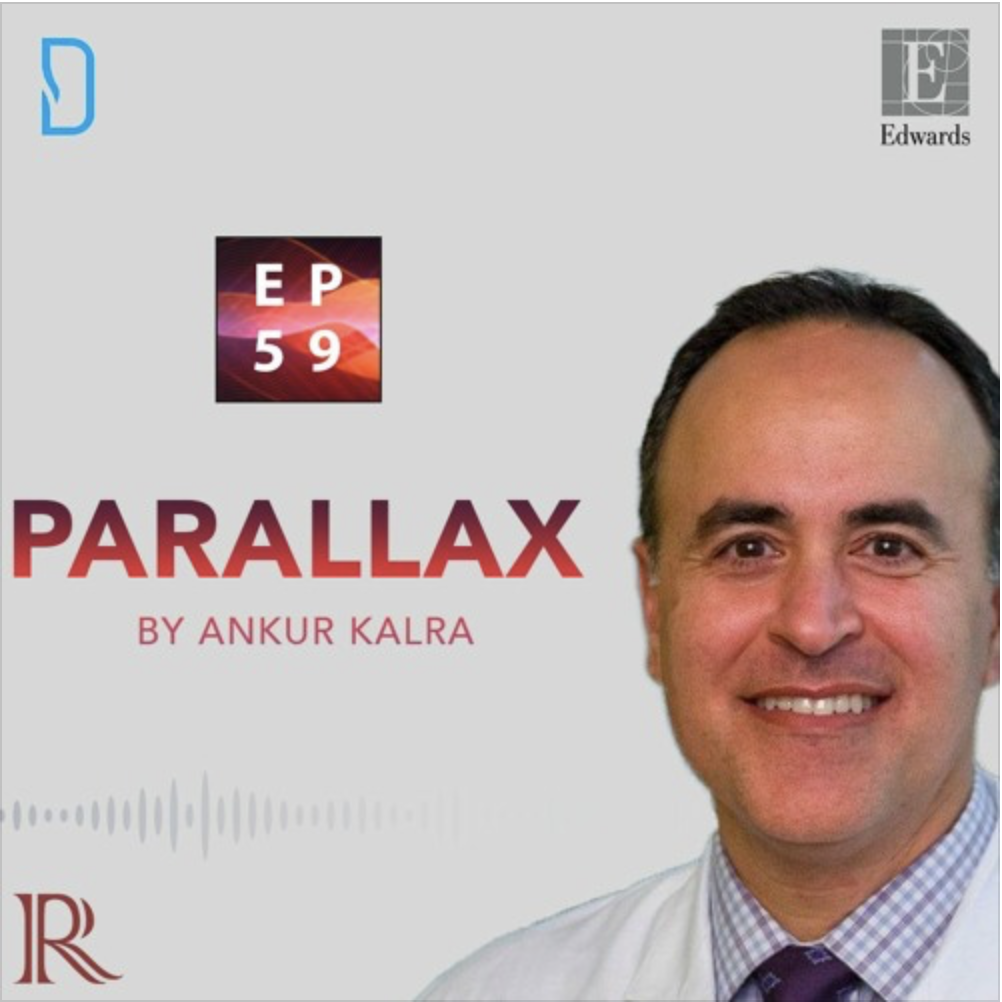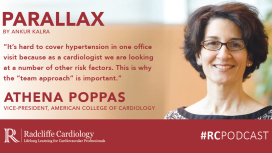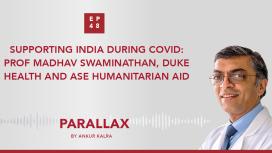
In this AHA 2021 episode of Parallax, Dr Ankur Kalra’s guest is Dr Amit Khera, Professor and Director of Preventive Cardiology at UT Southwestern Medical Center, Dallas and Vice Chair of the Scientific Sessions.
For this week’s show, Dr Khera selected three thought-provoking late-breaking trials that will inform or change clinical practice. Ankur and Amit discuss how the AVATAR trial will influence guidelines, and whether these findings could be translated to TAVR. Most importantly, they discuss how AVATAR’s results could inform patient decisions.
Next, Dr Khera highlights a randomized trial that was designed to address the needs of a larger population. The China Rural Hypertension Control Project offers exciting insights and an innovative framework for relying on social healthcare work.
Lastly, Dr Kalra and Dr Khera discuss a trial that investigated the LDL-cholesterol lowering efficacy of MK-0616. This oral PCSK9 Inhibitor may open the door for more patients in the future.
What were the key findings? What are the take-home messages? How will these 3 trials foster new opportunities for patients?
Trials covered in detail include:
• Aortic Valve Replacement versus Watchful Waiting in Asymptomatic Severe Aortic Stenosis: The Avatar Trial
• A Cluster Randomized Trial of a Village Doctor-Led Intervention on Blood Pressure Control: China Rural Hypertension Control Project
• The Clinical Safety, Pharmacokinetics, and LDL-Cholesterol Lowering Efficacy of MK-0616, an Oral PCSK9 Inhibitor
Questions and comments can be sent to “podcast@radcliffe-group.com” and may be answered by Ankur in the next episode. Guest @dramitkhera hosted by @AnkurKalraMD. Produced by @RadcliffeCARDIO.
Brought to you by Edwards: www.edwardstavr.com

Brought to you by Edwards: www.edwardstavr.com


They discuss the importance of preventative medicine, their experience of reducing hypertension with non-pharmaceutical and pharmaceutical methods, and the significance of the integrated “team approach” when treating comorbid conditions such as hypertension. Athena also shares her thoughts on cardiologists’ responsibility to shape their patients’ lifestyle choices.
Hosted by @AnkurKalraMD. Produced by @RadcliffeCardiology.

Chest pain is one of the most common reasons for an emergency room visit in the US, with almost 6 million ER visits annually, yet there is no consensus on how to compare the results from various hscTn assays. Tune in to hear Santiago outline the advantages and limitations of using hscTn as a standard biomarket to evaluate patients with suspected ACS in the ER.
Hosted by @AnkurKalraMD. Produced by @RadcliffeCardiology.


In this week's latest podcast episode, host, Ankur Kalra, MD, meets guest Prof Madhav Swaminathan (Duke University Health System, NC, US) to discuss how he has orchestrated a major humanitarian effort, in association with Duke University Health and The American Society of Echocardiography, to supply ventilation equipment and PPE to hospitals and NGOs during the current COVID-19 crisis in New Delhi, India.
Hear them discuss the challenges and learnings associated with the supply chain, inventory, logistics and cost to deliver this humanitarian effort; which most recently resulted in $140,000 of life-changing equipment being delivered to four key hospitals in New Delhi. A most inspirational episode.

In this candid and spiritual conversation Amit and Ankur take a journey through former episodes of Parallax and Ankur’s writings to explore what it takes to strive for a deeper knowledge of ourselves; or, as Ankur puts it, dharma, the inherent order of reality.

Parallax’s guest this week is Dr Eric David Adler, Medical director of heart transplant and mechanical circulatory support at UC San Diego Health.

How did Dr Gragossian receive her diagnosis? How does she feel about her new reality? What drives her? What is her message to our listeners?

Just after 9/11, Heval, the 18-year-old Syrian Kurdish refugee found a job as a dishwasher. At this point, he was the sole provider of his family. The pressure that comes from being poor did not leave him for many years. Today, he is firm believer in giving back to underserved communities by spreading awareness within the medical community. As he says, well-meaning people of privilege are sometimes afraid to act. What we need is more people to bridge the gap and find ways to help each other.





